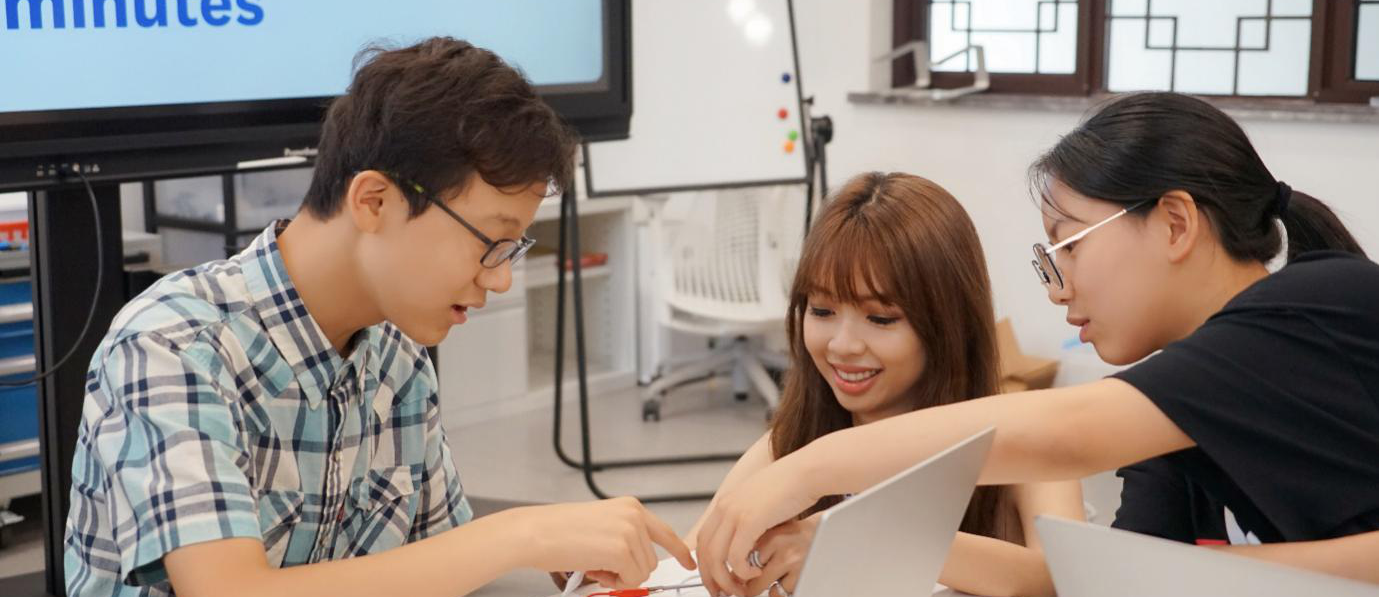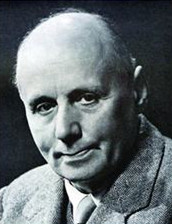
Overview
UWC Changshu China offers the IB Diploma Programme (DP) for Grades 11 and 12.
The IBDP is an academically rigorous pre-university programme recognized worldwide. It is noted for its commitment to service, its high academic standards and for creating international-mindedness through understanding multiple perspectives.
The IBDP prepares students for colleges and universities worldwide. IBDP students are a diverse group with varied backgrounds and aspirations. As of 2016, there are over 4,000 IB Schools around the globe employing over 70,000 educators and teaching more than one million students. In the last 12 years, DP students have sent over 100,000 transcripts to higher education institutions in more than 100 countries (source: www.ibo.org).
Through the IBDP, schools are able to develop students who:
Have excellent breadth and depth of knowledge
Flourish physically, intellectually, ethically and emotionally
Speak at least two languages
Excel in traditional academic subjects
Understand the nature of knowledge (through the programme’s unique “Theory of Knowledge” course)
Indulge, investigate, and publish original research as an “Extended Essay”
Get engaged and motivated by CAS(Creativity, Action and Service) activities which challenge and extend them beyond the academic curriculum
The DP curriculum is made up of the IB Core as well as six subject groups. The Core requirements help contribute to the unique nature of the IBDP.
Core Requirments
The three core elements are:
Theory of Knowledge, in which students explore the relationship between the study disciplines and the nature of understanding; the course ensures that students engage in critical thinking about knowledge and experience acquired both within and beyond the classroom
The extended essay, which is an independent, self-directed 4000-word research essay
Creativity, Activity and Service, in which students complete projects related to those three concepts
The combination of subjects with the Core requirements is a deliberate compromise between the preference of specialisation in some countries with the emphasis on breadth preferred in others.
The intent is that students gain an understanding of how to learn, how to analyse, how to reach considered conclusions about humanity and society, as well as the scientific forces of our universe.
All students are also required to study at least three subjects at the Higher Level (HL) and three subjects at the Standard Level (SL). At least one subject must be taken from each Subject Group as described below. Students may opt to study an additional sciences, individuals and societies, or languages course, instead of a Group 6 arts.
Subject Groups
Studies in Language and Literature
- Chinese A Literature
- Chinese A Lan & Lit
- English A Literature
- English A Lan & Lit
- School Supported Self-Taught
You can study this language as “Literature” or as “Language and Literature.(Although for some or many of you, this might be difficult to state confidently!) The former is a purely literary course, designed for students who respond passionately and confidently to the language in a literary context. The latter course examines both elements and looks at how the language is used in many different contexts, political, social, and persuasive, as an instrument of power, as an instrument of repression and as a mechanism for liberation, as rhetoric and as a way of making sense of the world.
Language Acquisition
- Chinese B
- English B
- French B
- German B
- Spanish B
- Spanish Ab Initio
- French Ab initio
- German Ab initio
*At UWC Changshu China, all students must take a (minimum) two-year Chinese language course at the appropriate level.
This involves the study of a learned language or second language. You might choose to take an ab initio language. This means studying a language that you have no previous knowledge of. (It could be Chinese but it could also be another language on offer if you are a Chinese speaker and already enjoy a good level of English competence) We offer German and Spanish at ab initio level.
Language acquisition courses provide students with the skills and intercultural understanding to enable them to communicate in an environment where the language is spoken. The IB’s main emphasis of modern language courses is the acquisition and use of language in a range of contexts and for different purposes while at the same time promoting an understanding of another culture through the study of its language. Students at UWC Changshu China can select from the following subjects: Chinese, French, English, Spanish and German. Students can choose these languages at either Higher or Standard Level, or at an ab initio level for students who have no previous knowledge of the language. Additionally, for students who wish to take Chinese as a language outside of their DP options the school offers IGCSE in Chinese.
Individuals and Societies
- Economics
- Geography
- History
- Philosophy
Uncertainty and disparate conclusions are part of the fabric of the disciplines in Group 3 and an ability to argue clearly, to test evidence, to weigh up counter-arguments, to listen carefully and to separate the relevant from the irrelevant is a very important part of the classroom practice and discussion. Such ways of thinking critically and making intellectual judgements are highly valued by universities and offer a solid foundation for tertiary education.
We offer History, Geography, Economics and Environmental Systems and Societies and Philosophy in this group.
Economics involves the study of resources, how they are allocated, problems in this allocation, the impact of the human presence on financial activity and different theories of economic behavior and optimal financial management at the micro (people, businesses and small communities) and macro (countries and governments) levels. There will be a concentration on study of real examples from the world around us and how economic problems are handled in a variety of countries and how they can be better handled, taking into account other elements of how we live together (see the issues mentioned in Geography below)
Geography is a subject which looks closely at the ways in which individuals, societies and cultures react to each other and to the physical environments in which they live. It tracks the imprint of mankind on the landscape and looks closely at global issues which affect our lives and our world, such as environmental depredation, under-sustainability, poverty, over-population, natural disasters and shortage of resources and how these can be managed. Of course, there are often major overlaps between these different areas of concern and study focuses on individual cases and global parallels, looking for the background to these issues and possible solutions to them.
History is the study of the past and its people and ideas and offers students the chance to understand historical movements, the development of ideas, how people lived and adjusted to their times and crucially an awareness of how the past has helped to create the present. Classroom practice will aim to develop in students the capacity to think critically, to evaluate historical sources, to understand the role of design and of accident in human affairs and to present arguments in articulate, clear ways, acknowledging the ideas of others honestly and openly.
Environmental Systems and Societies is a transdisciplinary subject i.e. its disciplines cover more than one Group and the techniques and knowledge acquired can be applied in several distinct academic areas. It links well as a subject with our concerns about environmental stewardship, sustainability, practical ways of safeguarding our own and others’ environments and our concern for our immediate and more distant contexts in and around Changshu. The subject focuses on the relationship between people in society and the fragile and precious resources and natural world which surround them. There will be practical elements to the subject of course, but also discussion of political, moral, historical, cultural and even aesthetic aspects of our roles as would-be guardians of the world we have inherited.
Philosophy provides an opportunity for students to engage with some of the world’s most interesting and influential thinkers. It also develops highly transferable skills such as the ability to formulate arguments clearly, to make reasoned judgments and to evaluate highly complex and multifaceted issues. The emphasis of the DP philosophy course is on “doing philosophy”, that is, on actively engaging students in philosophical activity. The course is focused on stimulating students’ intellectual curiosity and encouraging them to examine both their own perspectives and those of others. Students are challenged to develop their own philosophical voice and to grow into independent thinkers.
Experimental Sciences
- Biology
- Chemistry
- Physics
- Design Technology
- Environmental Systems & Societies
We offer Biology, Chemistry and Physics at the UWC Changshu China, all three at Higher and Standard Level. Experimental work in the laboratories plays a large part in the curriculum of all three and we intend to run a Science project during the second year of the DP course as part of the final assessment. Collaborative work is an essential element of the course, while individual experimentation and the construction of scientific hypotheses are also encouraged in class and in the Extended Essay component (see below)
Biology is the study of living organisms and their place and function in the eco-system, evolution and environmental balance, species diversity and environmental and ecological questions. Again, the emphasis will be on the world around us as well as theory, and we will use our own special immediate environment (the lakes, the alluvial plains of the Yangtse, the water lands near Wuxi and the urban areas of Changshu) to explore topics raised in the laboratory classroom.
Chemistry is an experimental science involving theory and practical laboratory applications. Many chemists say that this science is the “king of sciences” as all other sciences have chemical principles at their core. The subject sees chemical processes at the heart of existence and the relations and functions of chemical activity are the heart of theoretical and practical study.
Physics is, amongst other things, the study of the processes of the physical world at observable and invisible levels. It includes mechanics, magnetism, electricity, energy and waves, theories of relativity, astrophysics, and atomic and nuclear physics. Again, laboratory experimentation and collaborative practical work are emphasized and class work will look at the theories which underpin the practical areas.
Design Technology aims to foster among students the skills required to use new and existing technologies to create new products, services and systems. Modern technology involves the application of scientific discoveries to produce useful artifacts. In creating new technologies to solve problems, designers in turn impact on the rate of scientific discovery. Through DP Design Technology, students achieve a high level of design literacy through the development of critical-thinking and design skills which they can apply in a practical context. With enhanced understanding of design and the technological world, IB Design Technology students contribute to our shared guardianship of the planet and create a better world.
Mathematics
- MATHEMATICS APPROACHES AND ANALYSIS
- MATHEMATICS APPLICATION AND INTERPRETATION
MATHEMATICS APPROACHES AND ANALYSIS This course recognizes the need for analytical expertise in a world where innovation is increasingly dependent on a deep understanding of mathematics. This course includes topics that are both traditionally part of a pre-university mathematics course (for example, functions, trigonometry, calculus) as well as topics that are amenable to investigation, conjecture and proof.
The course allows the use of technology, as fluency in relevant mathematical software and hand-held technology is important regardless of choice of course. However, Mathematics: analysis and approaches has a strong emphasis on the ability to construct, communicate and justify correct mathematical arguments.
Higher level and standard level are offered. There are elements common to both subjects although the approaches may be different.
Mathematics Approaches and Analysis is recommended for students interested in mathematics, engineering, physical sciences and some economics.
MATHEMATICS APPLICATION AND INTERPRETATION This course recognizes the increasing role that mathematics and technology play in a diverse range of fields in a data-rich world. As such, it emphasizes the meaning of mathematics in context by focusing on topics that are often used as applications or in mathematical modelling. To give this understanding a firm base, this course also includes topics that are traditionally part of a pre-university mathematics course such as calculus and statistics.
The course makes extensive use of technology to allow students to explore and construct mathematical models. Mathematics: applications and interpretation will develop mathematical thinking, often in the context of a practical problem and using technology to justify conjectures.
Higher level and standard level are offered. There are elements common to both subjects although the approaches may be different.
Mathematics Applications and Interpretation is recommended for students interested in social sciences, natural sciences, medicine, statistics, business, engineering, some economics, psychology and design.
The Arts
- Visual Arts
- Theatre Arts
- Music
- Literature and Performance (depending on interest)
In Group 6 choices, it is possible to opt for another subject from one of the other five groups. For example, a student wishing to study Medicine at university could choose Biology in Group 6 if he/she had already chosen Chemistry in Group 4. A student who is interested in languages could take another language here (Group 1 or Group 2) if so wished. As the College develops, we will include more Arts subjects in Group 6.
Visual Arts: The Visual Arts programme empowers students to communicate ideas through exploration of multi-disciplinary, traditional and digital art techniques. The course covers 2D and 3D design alongside the practical investigation of a vast range of artistic skills and processes such as painting, print making, sculpture and digital lenses based media, with the aim of providing a broad foundation of skills to take with them for further studies at university level. Throughout the course students will learn analytical and critical thinking skills as well as appreciate art from a variety of historical, cultural and social contexts. In their second year students will curate a final examined exhibition of the artwork they have completed during the two year duration of this course.
Theatre: This exciting subject is for the experienced actor and the absolute beginner and all shades of exposure to the stage in between. It is a practical and theoretical subject and great emphasis is placed on project work, collaborative and experiential learning and team discovery but there is also space for the individual and her/his explorations of the physical space of the stage, the imagination and the realm of performance. The subject involves developing an awareness of the socio-cultural and historical aspects of drama and an opportunity to acquire and enrich the skills which lie behind the actor's or director's roles.
Music: The Music programme is essentially practical and creative. Whilst it is definitely an advantage to have some previous musical experience it is not essential for selection and success in the music programme. Throughout the course, Music students of all ability are encouraged to develop their own individual skills and interests in music as well as expand their expertise and musical knowledge both in and outside the classroom. The curriculum focuses on performance, composition and listening skills as well as academic skills such as analysis and appreciation of music from a variety of cultural backgrounds. The proximity to cultural centers such as Shanghai and Suzhou allows for visits to concerts and/or opera performances.
Literature and Performance: This subject can be taken as a Group 6 option or a Group 1 option. It is an innovative and comparatively recent addition to the subjects offered by the IB and looks at the connection between text, meaning, performance and effect. It incorporates literary judgement, theatrical exploration, awareness of language and meaning and cultural and aesthetic values. It can be particularly challenging and enjoyable for interested second language speakers who can transform their understanding of dramatic form, verbal interplay and the requirements of the theatre into a practical and memorable discipline without the need for a very rich grasp of the vehicular language.










